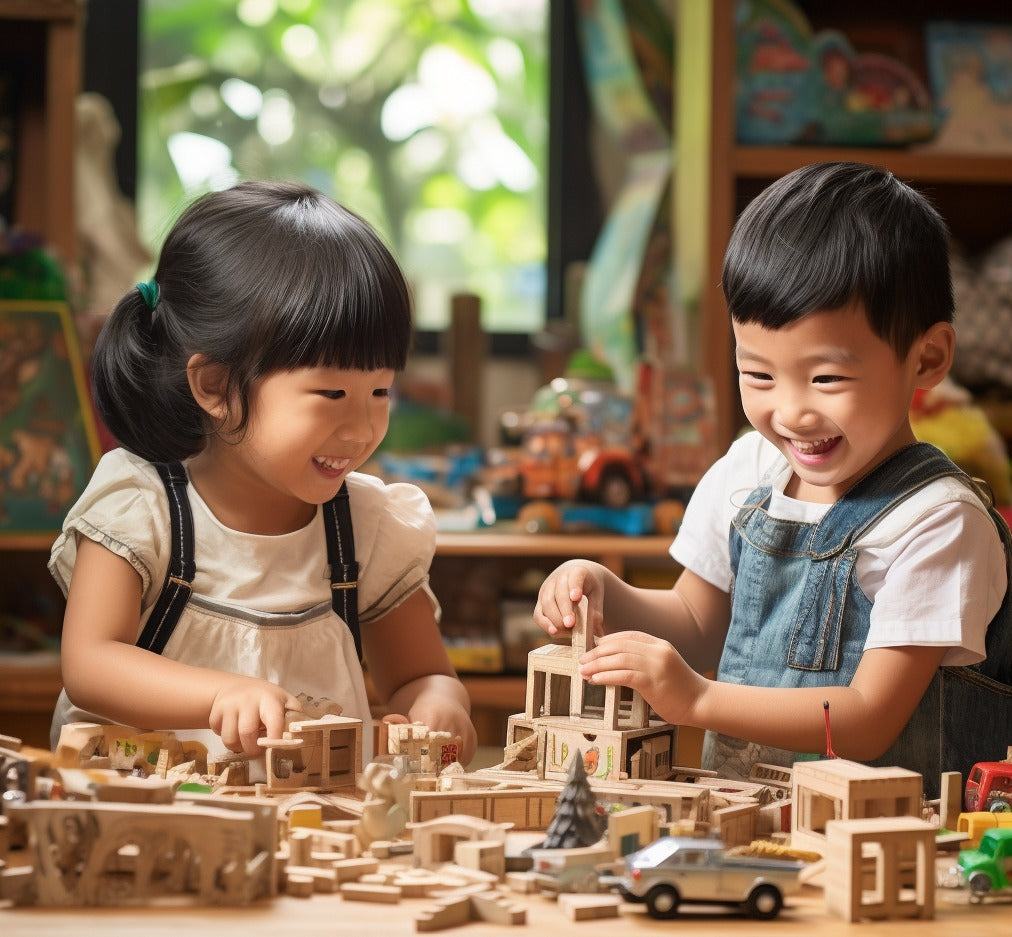Educational Toys: More Than Just Child's Play

In today's digital age, where children are often immersed in screens and technology, the importance of hands-on learning experiences cannot be emphasized enough. Educational toys have emerged as powerful tools that engage young minds, stimulate their creativity, and promote learning in a fun and interactive way. These toys go beyond mere entertainment; they are carefully designed to facilitate cognitive, physical, and social development in children. In this blog post, we will explore why educational toys are not just toys but valuable educational resources that provide countless benefits for children's growth and development.
Igniting Curiosity and Imagination:
Educational toys are designed to capture children's attention and ignite their curiosity. They come in various forms, such as building blocks, puzzles, science kits, and role-playing sets, allowing children to explore different realms of knowledge. By engaging in open-ended play, children are encouraged to think critically, solve problems, and develop their imaginative skills. These toys provide a fertile ground for creativity to flourish, as children can experiment, invent, and create their own narratives, fostering a sense of exploration and discovery.
Enhancing Cognitive Development:
Educational toys offer numerous cognitive benefits, helping children develop essential skills for future success. For instance, puzzles and construction sets improve spatial awareness, problem-solving, and logical thinking. Math and number-based toys promote numeracy skills, while language-based toys enhance vocabulary, communication, and literacy. Science kits and experiments encourage scientific inquiry, while artistic toys nurture self-expression and fine motor skills. The interactive nature of these toys fosters cognitive growth by engaging multiple senses and stimulating brain development.
Fostering Social and Emotional Skills:
Educational toys also play a crucial role in developing social and emotional skills. Many toys are designed for cooperative play, promoting teamwork, communication, and negotiation skills. Board games, for example, teach children about rules, fair play, and turn-taking, fostering social interaction and empathy. Role-playing toys, like kitchen sets or doctor kits, encourage imagination and allow children to explore various social roles, building empathy and understanding. By engaging in pretend play, children learn to navigate social situations, express emotions, and develop problem-solving skills in a safe and controlled environment.
Bridging Learning Gaps:
Educational toys can be particularly valuable in bridging learning gaps and supplementing formal education. They provide an opportunity for children to reinforce and apply concepts learned in school, making the learning process more enjoyable and effective. For children struggling with specific subjects, targeted educational toys can provide additional support and practice. Additionally, educational toys can cater to different learning styles, accommodating visual, auditory, and kinesthetic learners, ensuring that every child can thrive and learn at their own pace.
Educational toys are much more than mere playthings. They are powerful educational resources that promote holistic development in children. By stimulating curiosity, enhancing cognitive skills, fostering social and emotional growth, and bridging learning gaps, these toys provide invaluable learning opportunities for young minds. Parents, educators, and caregivers should recognize the immense potential of educational toys and integrate them into children's playtime to create engaging and enriching learning experiences. Remember, when it comes to educational toys, the possibilities for learning and growth are endless!


